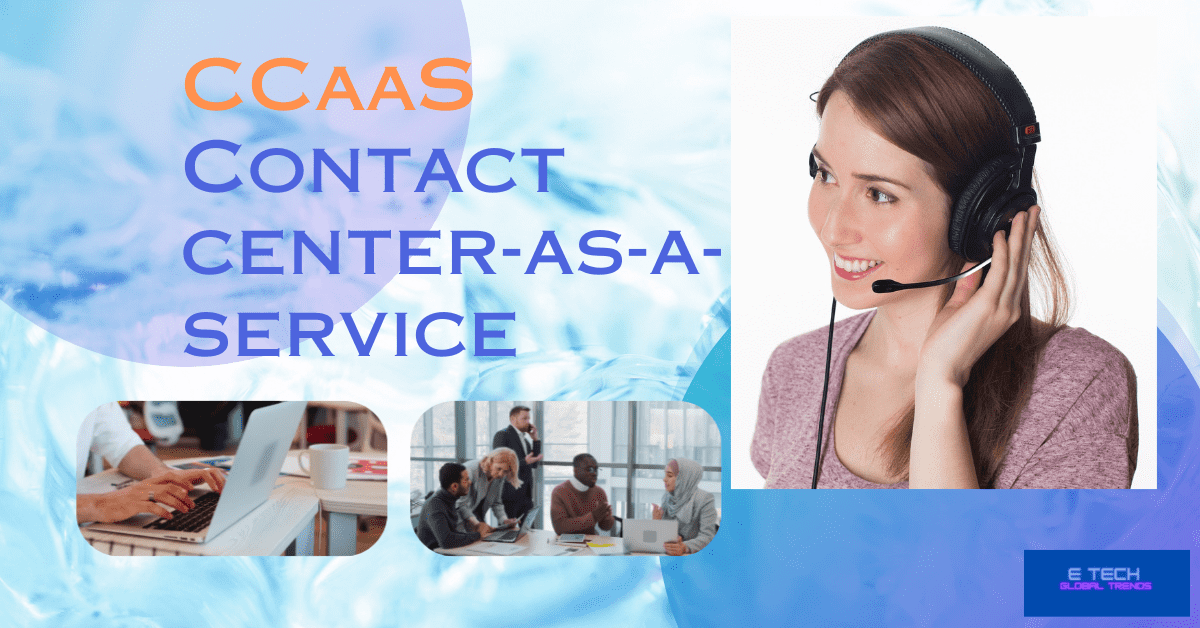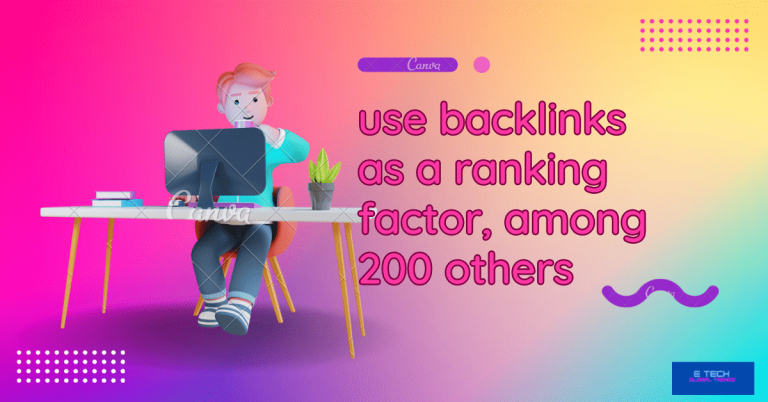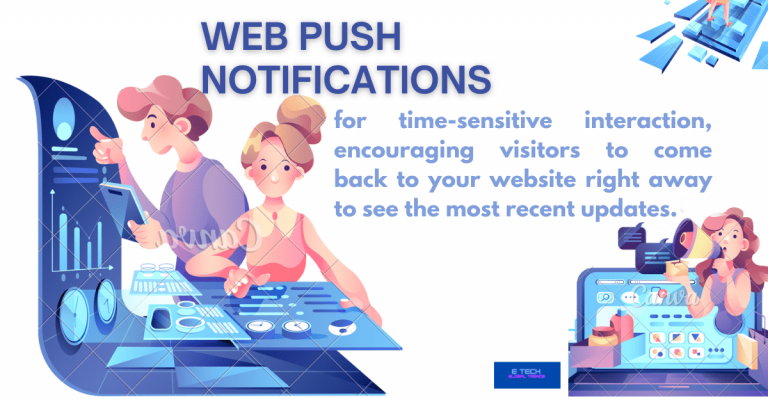Contact Center as a Service
Contact Center as a Service refers to any cloud-based customer support platform.
Because this technology may be implemented and maintained more quickly and affordably than a typical customer support center, interest in it is rising.
Establishing a standard contact center typically costs fifteen thousand dollars. In contrast, CCaaS systems can cost each agent up to $200 per month on average.
Furthermore, studies conducted by the industry have indicated that maintenance costs will account for around $2 of every $1 invested in contact center infrastructure.
Since clients pay a subscription fee that includes installation and maintenance, CCaaS lowers these expenses.
CCaaS systems, notably, may be built in as little as five weeks, contingent on the level of intricacy needed. In contrast, a typical contact center needs three months to complete its setup.
More calls, according to 61% of leaders in customer service. Additionally, 58% of executives in customer service anticipate a further rise in volume over the following 18 months.
Remarkably, throughout the previous 12 months, over half of customer service centers reported an increase in staff churn.
To combat these issues, businesses are relying more and more on technology.
For this reason, it is anticipated that the demand for technologies such as customer service software will rise five times over the next eight years.
What is CCaaS?
For customer service & support, contact center as a service, or CCaaS, is a cloud-based solution. With the use of CCaaS technology, companies can handle client contacts from one interface across a variety of channels, including;
- chat,
- email,
- social media, and
- phone.
Due to the cloud-hosting nature of CCaaS solutions, companies may establish their contact centers without having to spend money on pricey gear or software. Alternatively, customers can subscribe to the service and pay as much as they require.
Some essential CCaaS features
Shall we discuss the features?
1.0 Multichannel Assistance
Multiple channel support offered by CCaaS solutions enables companies to interact with clients on their preferred medium, improving the client experience.
2.0 ACD-Automatic Call Distribution
With CCaaS systems, incoming calls are routed to the most suitable agent based on availability, skill level, and language competence via ACD.
3.0 IVR- Interactive Voice Response
IVR is used by CCaaS systems to automate some aspects of the customer care process, such as obtaining client data and offering self-service alternatives.
4.0 Analytics and reporting in real-time
CCaaS systems give organizations the ability to monitor important metrics like;
- call volume,
- wait times, and
- customer satisfaction in real-time through reporting and analytics.
Making educated decisions about personnel and training may be done using this data.
Why is CCaaS the way of the future?
However, for several compelling reasons that cutting-edge businesses like Teloz enable, CCaaS is rapidly taking over the customer service industry.
1.0 Omnichannel
CCaaS solutions combine all communication channels, including social media, email, and voice, into a single, seamless experience. Customer service will evolve into an omnichannel strategy in the future.
2.0 Flexibility
Teloz CCaaS solutions allow for easy scaling up or down in response to shifting business requirements. This is helpful.
3.0 Innovation
Teloz CCaaS platforms may readily include emerging technologies, such as artificial intelligence (AI), voice analytics, customer journey analytics, and others, to promote innovation.
4.0 Mobility
With the Teloz CCaaS mobile apps, agents can assist clients from any location. The workforce of the future is mobile.
5.0 Data Insights
Teloz CCaaS offers insightful analytics and useful customer service data to pinpoint areas in need of development. The future lies in data.
6.0 Fast Implementation
Teloz makes it possible to deploy CCaaS solutions quickly without the need for time-consuming setup and configuration. The future lies in speed.
7.0 Cost-effectiveness
CCaaS systems have a per-use pricing model. Compared to conventional on-premise contact centers, this is significantly more cost-effective.
8.0 Reliability
Teloz provides excellent uptime and reliability by utilizing cloud infrastructure. Downtime is not an option for customer service.
How can CCaaS products support the expansion of businesses?
The contact center as a service, or CCaaS, solutions may support company expansion in several important ways. furthermore.
1.0 Boost sales and conversions
CCaaS gives companies the ability to quickly identify and qualify prospects with intelligent call routing, interactive voice response, and connectivity with CRM data. Sales conversion rates may be greatly increased by doing this.
2.0 Boost customer satisfaction
Businesses may provide consumers with a variety of support channels, including live chat, email, social media, and self-help alternatives, by utilizing cloud computing as a service (CCaaS).
Customer happiness rises as a result of the omnichannel experience this produces.
3.0 Boost productivity
CCaaS gives agents the tools they need to manage client contacts more skillfully by automating manual tasks. As a result, agent productivity rises.
4.0 Acquire operational insights
Contact center performance, call volume, response times, and other important data are all well-represented in real-time & historical analytics provided by CCaaS systems. Having this visibility helps in decision-making.
5.0 Enhance flexibility
CCaaS makes it simple for companies to gradually increase their contact center performance in response to shifting business requirements. This offers flexibility and agility.
6.0 Reduce expenses
CCaaS solutions don’t need any initial capital investment. Only the amount used is paid for by businesses. Overall expenses are greatly decreased as a result.
7.0 Prompt innovation
AI, voice analytics, customer journey analytics, and other cutting-edge technologies may easily implement with the help of CCaaS systems. This encourages creativity.
To sum up, CCaaS solutions significantly contribute to business success through enhanced productivity, happier customers, informed decision-making, greater sales, flexibility, cost savings, and innovation.
15 real trends of CCaas?
Which major developments anticipate to influence the growth of the Contact Center as a Service industry in the next years, significantly?
In the next years, several significant trends are anticipated to have an impact on this industry.
These were the expected sources of growth and development in the CCaaS market. especially.
furthermore, the precise patterns may vary:
1. 0 Cloud Adoption
Growing numbers of companies are moving their contact centers to the cloud to take advantage of its,
- scalability,
- flexibility, and
- cost-effectiveness.
So, this trend toward cloud-based solutions is still quite noticeable.
2.0 Omnichannel Communication
Customers are expecting more and more frictionless communication through voice, chat, email, social media, & video, among other channels. There was a demand for CCaaS solutions that facilitate omnichannel communication.
3.0 Remote and Hybrid Workforce
The emergence of hybrid and remote work patterns called for CCaaS solutions that provided agents with the flexibility to work from any location and powerful capabilities for remote monitoring & management.
4.0 Personalization
Using data-driven insights to customize customer interactions was turning into a vital component of CCaaS to increase client loyalty and satisfaction.
5.0 Analytics and Reporting
By utilizing cutting-edge analytics and reporting solutions, businesses may better make decisions and optimize performance by gaining insightful knowledge from consumer interactions.
6.0 Automation and AI
It was anticipated that automation, virtual agents, and AI-driven chatbots would be crucial to raising customer satisfaction, cutting expenses, and increasing productivity.
7.0 Security and Compliance
CCaaS providers anticipated improving their security protocols and compliance skills to comply with regulatory standards, given the growing emphasis on the security and privacy of data.
8.0 AI-Enhanced Quality Management
Processes for quality management were being automated with the help of AI and machine learning technologies, which made it simpler to keep an eye on and enhance agent performance.
9.0 Self-Service and Knowledge Bases
To enable users to locate solutions independently, CCaaS solutions include knowledge bases and self-service tools.
10.0 Sustainability and Green Practices.
CCaaS providers were expected to collaborate with sustainability objectives, and businesses were expressing interest in eco-friendly practices.
11.0 Global Expansion
Organizations looking to expand internationally were looking for CCaaS services that could grow and offer reliable service in several locations.
12.0 Collaborations and Integrations
To deliver a more complete array of solutions, CCaaS companies were partnering and integrating with other software & service suppliers.
13.0 Scalability and Personalization
the expectation of CCaaS systems would provide a high degree of flexibility and scalability to accommodate the unique requirements of various enterprises and sectors.
14.0 Edge Computing
Because edge computing offers lower latency and better performance, it is becoming more and more important, particularly for real-time interactions.
15.0 Blockchain Security
Several CCaaS providers were investigating blockchain technology to improve data integrity and security in client interactions.
16.0 Global Extension:
As companies increase their worldwide footprint, emerging regions will witness development in the CCaaS market.
These patterns show how companies’ demands to remain competitive and offer top-notch customer service are changing.so, Businesses in the CCaaS space will need to adjust to these developments.
There fore, CCaaS market anticipation shapes by these developments in the next years, with an emphasis on optimizing efficiency, guaranteeing regulatory compliance, and increasing customer experience. Companies using CCaaS solutions will probably have to adjust to these developments to satisfy customers and stay competitive.
Summary
Contact Center as a Service represents Contact centers and consumer interaction using cloud-based contact center technologies.
It Has features like agent management, IVR, ACD routing, and reporting.
Hope this content helps.
Cheers!
Read more on related topics here sales funnel, Google business profile








Hi,
I intend to contribute a guest post to your website that will help you get good traffic as well as interest your readers.
Shall I send you the topics then?
Best,
Alvina Miller